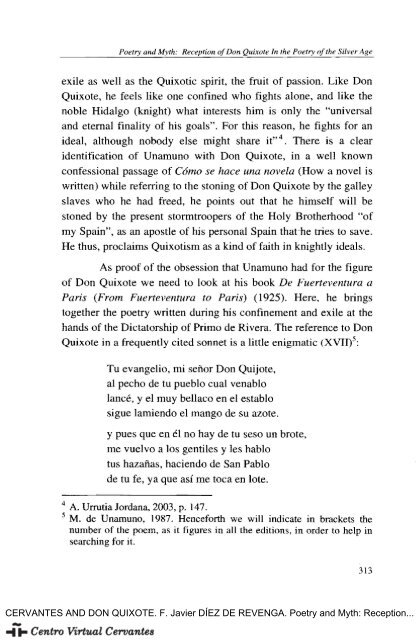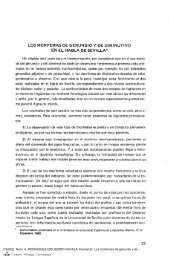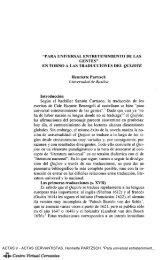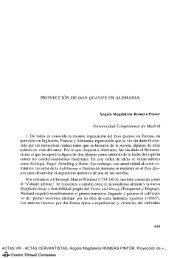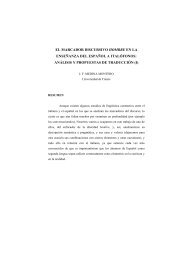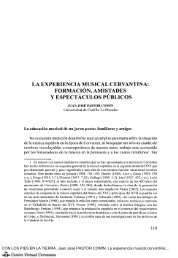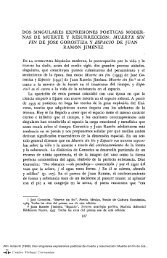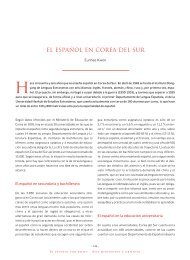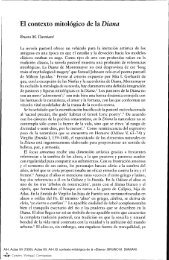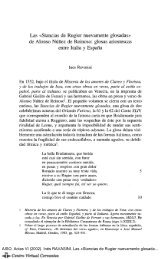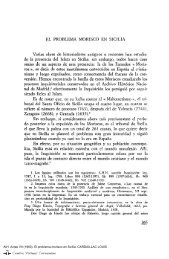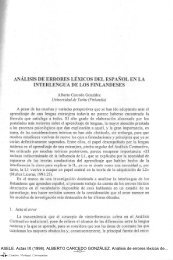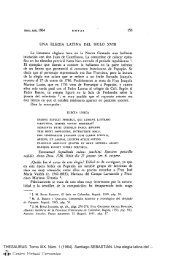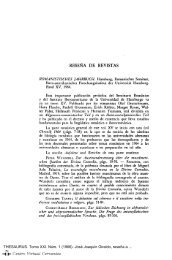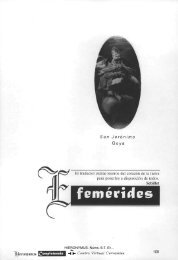You also want an ePaper? Increase the reach of your titles
YUMPU automatically turns print PDFs into web optimized ePapers that Google loves.
exile as well as <strong>the</strong> Quixotic spirit, <strong>the</strong> fruit <strong>of</strong> passion. Like Don<br />
Quixote, he feels like one conf<strong>in</strong>ed who fights alone, and like <strong>the</strong><br />
noble Hidalgo (knight) what <strong>in</strong>terests him is only <strong>the</strong> "universal<br />
and eternal f<strong>in</strong>allty <strong>of</strong> his goals". For this reason, he fights for an<br />
ideal, although nobody else might share it,,4. There is a clear<br />
identification <strong>of</strong> Unamuno with Don Quixote, <strong>in</strong> a well known<br />
confessional passage <strong>of</strong> Cómo se hace una novela (How a novel is<br />
written) while referr<strong>in</strong>g to <strong>the</strong> ston<strong>in</strong>g <strong>of</strong> Don Quixote by <strong>the</strong> galley<br />
slaves who he had freed, he po<strong>in</strong>ts out that he himself will be<br />
stoned by <strong>the</strong> present storrntroopers <strong>of</strong> <strong>the</strong> Holy Bro<strong>the</strong>rhood "<strong>of</strong><br />
my Spa<strong>in</strong>", as an apostle <strong>of</strong> his personal Spa<strong>in</strong> that~he tries to save.<br />
He thus, proclaims Quixotism as a k<strong>in</strong>d <strong>of</strong> faith <strong>in</strong> knightly ideals.<br />
As pro<strong>of</strong> <strong>of</strong> <strong>the</strong> obsession that Unamuno had for <strong>the</strong> figure<br />
<strong>of</strong> Don Quixote we need to look at his book De Fuerteventura a<br />
Paris (From Fuerteventura to Paris) (1925). Here. he br<strong>in</strong>gs<br />
toge<strong>the</strong>r <strong>the</strong> poetry written dur<strong>in</strong>g rus conf<strong>in</strong>ement and exile at <strong>the</strong><br />
hands <strong>of</strong> <strong>the</strong> Dictatorship <strong>of</strong> Primo de Rivera. The reference to Don<br />
Quixote <strong>in</strong> a frequenUy cÍted sonnet is a Httle enigmatic (XVII)5:<br />
Tu evangelio, mi señor Don Quijote,<br />
al pecho de tu pueblo cual venablo<br />
lancé, y el muy bellaco en el establo<br />
sigue lamiendo el mango de su azote.<br />
y pues que en él no hay de tu seso un brote,<br />
me vuelvo a los gentiles y les hablo<br />
tus hazañas, haciendo de San Pablo<br />
de tu fe, ya que así me toca en lote.<br />
4 A. Urrutia Jordana, 2003, p. 147.<br />
5 M. de Unamuno, 1987. Henceforth we will <strong>in</strong>dicate <strong>in</strong> brackets <strong>the</strong><br />
number <strong>of</strong> <strong>the</strong> pocm, as it figures <strong>in</strong> all <strong>the</strong> editions, <strong>in</strong> order to help <strong>in</strong><br />
search<strong>in</strong>g for it.<br />
313


